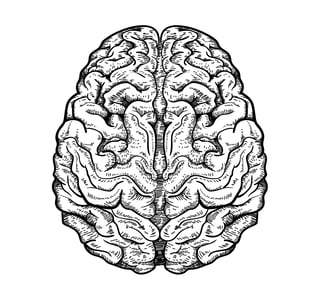- Privacy Policy
- Terms & Conditions
- Contact us
- ©Isabel Healthcare 2025
National Brain Injury Awareness Month 2018 - TBIs and their symptoms
 March is National Brain Injury Awareness Month in the US, led by the Brain Injury Association of America (BIAA). A brain injury is quite literally any injury to the brain, and so is a very wide subject encompassing many different injuries. From sports injuries and traffic accidents to strokes and damage from drug abuse, a brain injury affects up to 1.5 million Americans every year, and those are just the ones that report to the emergency room or doctor. This year BIAA are focusing on breaking down stigmas and misconceptions surrounding brain injuries and the disabilities resulting from them. They are using the hashtag #changeyourmind to help spread awareness, and we’ll talk more about what you can do once we’ve done our bit. We thought we would go over the basic information, terminology and of course symptoms of brain injuries, to help educate everyone this National Brain Injury Awareness Month.
March is National Brain Injury Awareness Month in the US, led by the Brain Injury Association of America (BIAA). A brain injury is quite literally any injury to the brain, and so is a very wide subject encompassing many different injuries. From sports injuries and traffic accidents to strokes and damage from drug abuse, a brain injury affects up to 1.5 million Americans every year, and those are just the ones that report to the emergency room or doctor. This year BIAA are focusing on breaking down stigmas and misconceptions surrounding brain injuries and the disabilities resulting from them. They are using the hashtag #changeyourmind to help spread awareness, and we’ll talk more about what you can do once we’ve done our bit. We thought we would go over the basic information, terminology and of course symptoms of brain injuries, to help educate everyone this National Brain Injury Awareness Month.
What is a traumatic brain injury (TBI)?
We have established that a traumatic brain injury (TBI) can be anything from a knock to the head when falling over, to a large stroke, so that is quite a range of injuries to cover. Generally speaking, traumatic brain injuries are split into four categories of mild, moderate severe, and very severe. These are determined by the length of time someone is unconscious and the length of time they suffer from Post Traumatic Amnesia (PTA). This means the period of time, after a trauma to the brain, where the person can’t remember simple things, like names, dates and even any form of communication in some cases.
Mild
This is when someone has been unconscious for less than 15 minutes, and has PTA for less than 1 hour. It is what most people think of as a mild concussion as it usually occurs after a knock to the head. This can happen in thousands of different ways from falling over whilst ice skating to hitting your head on a door, and you may not even know you have had it. In most cases people make a full recovery after some rest. Symptoms include dizziness, feeling faint, feeling sick, and feeling tired.
Moderate
A TBI is considered moderate if unconsciousness lasts between 15 minutes - 6 hours, and PTA lasts between 1 hour and 24 hours. A hospital may want to keep you in overnight for observation in these circumstances, to ensure that the PTA begins to subside and you don’t take a turn for the worse. They will also be checking for any signs of bleeding on the brain or similar complications. As well as the same symptoms of a mild TBI, a moderate injury can result in difficulties in thinking and concentrating properly, and often people become understandably anxious or concerned. We will talk about the more lasting effects and how to cope with these later in the post.
Severe
If a state of unconsciousness lasts for more than 6 hours but less than 48 hours, and PTA continues for between 24 hours and 7 days, then the TBI is considered to be severe. This will almost certainly involve a hospital stay and the period of unconsciousness may be referred to as a coma. There will also most likely be a period of rehabilitation after the worst phase is over. As well as longer lasting symptoms detailed below, there are often immediate issues with communication, mobility and psychological factors, as well as bleeds on the brain, strokes and other general bodily functions.
Very Severe
The final category is for anyone who is unconscious for more than 48 hours, or has a period of PTA lasting more than a week. With each day of being in a coma or having PTA, the chances of a full recovery decrease and the complications can become more severe as well. In some rarer cases, however, people can still make a full recovery after a very severe TBI.
Lasting effects of a brain injury
These categories are an excellent way for a medical team to assess how serious a brain injury is at the point a patient presents with symptoms, and helps them know what level of care is required. However, they are not a foolproof indication of the effects the TBI is going to have long term. A person with only a mild TBI could suffer some lasting effects that change their lifestyle, and a person suffering a very severe TBI having been unconscious for a week, may make a full recovery and not notice too many lasting effects. Noticing and recording any signs and symptoms in the weeks after a brain injury can help with finding coping mechanisms and in some cases, therapies and medications can help lessen or remove the symptoms. There are physical and cognitive effects after a brain injury and they are as follows:
Physical
- General mobility
- Range of movement in joints and limbs
- Paralysis
- Epilepsy
- Loss of 1 or more of the senses
- Epilepsy
- Fatigue
- Speech facial movements
- Hormonal imbalances
Cognitive
- Memory and recall
- Planning and organization
- Motivation
- Mood swings and irritability
- Language difficulties
- Visual impairment
- Concentration
- Reduced self awareness
- Personality changes
In most cases, the more severe the initial TBI, the more symptoms someone experiences and the more serious those symptoms are. Someone with a mild TBI may simply feel confused and find it less easy to concentrate for a few months, whereas someone with a severe TBI will have to learn to speak again and may always have an issue with speech. It is hard to tell and our brains are very complex, so we never know exactly how they are going to be affected. Symptoms can get better with time or may always remain throughout the person’s life, and there is a lot of support and many charities out there that can help people and loved ones through this period of transition and acceptance, some of which we’ve put at the end of this post.
What you can do this Brain Injury Awareness Month
The main thing you can do this year for Nation Brain Injury Awareness Month is spread awareness and information on TBIs and the different ways they can affect people. Understanding symptoms is a step towards removing the stigmas surrounding those who live with a disability due to a past trauma to the brain. Using the hashtag #changeyourmind can help open up a discussion and highlight how life altering and sudden a TBI can be. There are also a lot of resources including posters and information leaflets to be downloaded from the BIAA website. Take a look at those and share them with the hashtag #changeyourmind, so we all get talking about brain injuries!
Useful websites:
Brain Injury Association of America
If you're worried about any of the symptoms mentioned in this post, enter your symptoms into the Isabel Symptom Checker and use the 'Where Now?' to decide what steps to take next. Take your results with you to the doctor or emergency room, to discuss the possible diagnoses.
Image Attribution:
Isolated brain illustration | Free vector by Vexels
Mandy Tomlinson
Mandy has worked for Isabel Healthcare since 2000. Prior to this, she was a Senior Staff Nurse on the Pediatric Infectious disease ward and high dependency unit at one of London's top hospitals, St Mary’s in Paddington which is part of Imperial College Healthcare NHS Trust. Her experience in the healthcare industry for the past 33 years in both the UK and USA means she's a vital resource for our organization. Mandy currently lives and works in Scottsdale, Arizona.
Subscribe Here!
Recent Posts
Isabel DDx Companion with ChatGPT Integration - to help you diagnose even faster
At Isabel Healthcare, we’ve always been driven by one goal: to make clinical reasoning faster,..Virtual Triage: Do more questions lead to better patient outcomes?
One of the common misconceptions related to virtual triage / symptom checker tools is that the more..List Of Categories
- Differential Diagnosis Decision Support
- Differential diagnosis
- Symptom Checker
- Symptoms
- Medical Error
- Patient Disease Information
- Disease
- Clinical Decision Support
- Diagnostic Decision Support
- Isabel 1 Minute Read
- Diagnosis Error
- Diagnosis Skills Cases
- Healthcare Informatics
- Clinical Reasoning
- Evidence-based Medicine
- Medical Education
- Patient Engagement
- Symptom Triage
- Nurse Practitioner Education
- Nursing Decision Support
- Partnership
- Public Health
- COVID-19
- EHR
- Patient Empowerment
- Patient Safety
- rare disease

Start your FREE Trial today
Try the Isabel Pro DDx generator for 30-days - no payment card details required.




